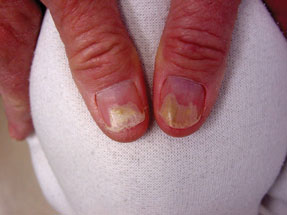ACP remains committed to securing patient access to care
ACP's president rebuts a recent opinion piece disparaging the College's advocacy on the issue of access to care.
“It's not what you say; it's what you do.” Like many aphorisms, this one is durable because it is true. What individuals and organizations do is a more valid indication of their values than attestations and mission statements.
Many of you might have seen the piece published in the New England Journal of Medicine on Nov. 14, 2013, titled “Dead Man Walking.” In this poignant piece, Michael Stillman, MD, and Monalisa Tailor, MD, ACP Resident/Fellow Member, tell the story of their patient, the pseudonymous Tommy Davis, whose lack of health insurance led him to delay effective evaluation of his abdominal pain and bloating until his symptoms became unbearable. At that point, his workup (which consumed his entire life savings) revealed widely metastatic colon cancer.
“Dead Man Walking” goes on to indict ACP, the American Medical Association, and the Society of General Internal Medicine for “[remaining] silent during years of political debate.” I believe that this is a mischaracterization of all 3 organizations; with respect to ACP it certainly is dead wrong.
Mr. Davis's story and those of several other patients mentioned in “Dead Man Walking” are distressingly familiar to ACP members. We all see patients who pay for most or all of their care out of pocket, who spread required medications over 2 or 3 times the interval for which they were prescribed to economize, or who present with significant disability or life-threatening conditions associated with disorders that might have been little more than an inconvenience if caught early. These harrowing stories provide a powerful argument for the reforms promised by the Affordable Care Act.
In their essay, Drs. Stillman and Tailor reflect on the obligation of physicians to address the circumstances that led to Mr. Davis's delay of care and the inadequate care he received when he initially presented. They conclude that we have 3 levels of responsibility:
Their reasoning is entirely in accord with the arguments made by Russell L. Gruen, MBBS, and colleagues in an important paper published in JAMA, the Journal of the American Medical Association, in 2004. In “Physician-Citizens—Public Roles and Professional Obligations,” the authors write that beyond our core responsibility to provide care to individual patients, we have advocacy and community participation responsibilities that redound to us because of the direct impact on our patients' health. In fact, Dr. Gruen calls out access to care as second only to direct patient care as a matter of professional obligation for physicians. The American College of Physicians agrees.
I wrote in my first President's Message in April 2013 that it was the College's uncompromising stand on the obligation of physicians to care for patients whose conditions fell within their expertise that earned my lasting loyalty as an AIDS doctor. This was an access to care issue. With respect to the Affordable Care Act, the College has been equally unequivocal and vigorous in its advocacy. A search of the College's public policy library using the search term “Affordable Care Act” produces 321 documents from 2008 to the present—policy statements, testimony and letters to officials—advocating for universal access through health care reform legislation, strengthening the proposed legislation that ultimately became the Affordable Care Act, and supporting effective implementation of the provisions of the ACA.
Furthermore, consider these 2 milestones along the way.
In February 2010, then ACP President Joseph W. Stubbs, MD, MACP, wrote a letter of support for the Affordable Care Act urging a “yes” vote. This followed a period of several years of collaboration with members of Congress on the development and refinement of antecedent legislation. In the difficult summer after the signing of the ACA in March 2010, College leaders attended town halls and other gatherings, speaking in support of the legislation.
On June 28, 2012, then ACP President David L. Bronson, MD, MACP, celebrated the upholding of the legislation by the U.S. Supreme Court, saying, “ACP looks forward to the day in 2014 when nearly all Americans will have access to affordable health insurance ....”
As attention shifted to the states and the expansion of Medicaid, a key component of the law for patients like Mr. Davis, the College worked through its chapters to make the case for expansion in statehouses around the country, preparing state-specific resource materials for chapters. Particular efforts were expended in areas of the country where there was resistance to the legislation, not least among physicians.
Like Drs. Stillman and Tailor, we are not satisfied with the current state of health care in the U.S. I, like many members, continue to see patients whose health is being harmed by their lack of insurance or inadequate coverage. We all find ourselves prioritizing tests, medications and procedures, all of which a patient may need, because the expenses will be borne largely out of pocket. Sometimes we find ourselves restricted to interventions that we can provide in our own offices because we can't persuade our colleagues and ancillary organizations to provide services without billing. However, the fact that we have not achieved the access to health care we all want for our patients does not mean that we have been silent, as individuals or as a College. It is important not to confuse insufficient effect with inadequate action.
So my response to Drs. Stillman and Tailor is that ACP does not just talk the talk; we walk the walk. I was gratified that every single comment I received from College members about “Dead Man Walking” recognized that it misrepresented the sustained, multifaceted and broad-reaching efforts of the College to extend access to health care. The Affordable Care Act is one step in the journey to health care for all. The College is in the fight for access to health care for the long haul.



